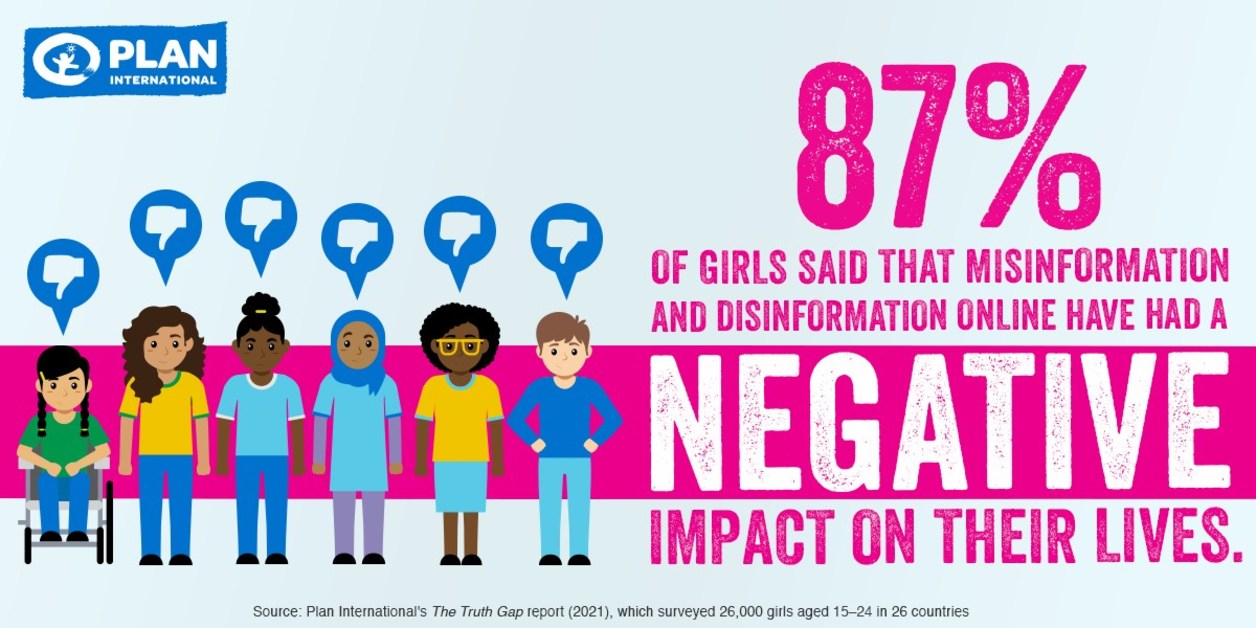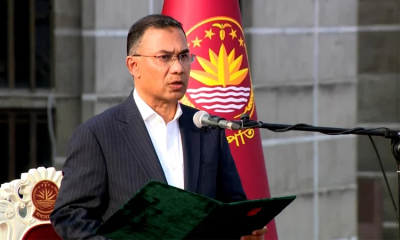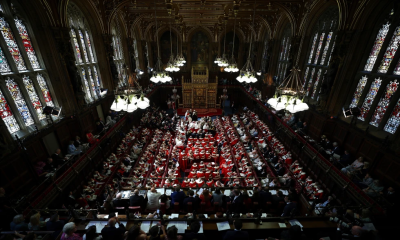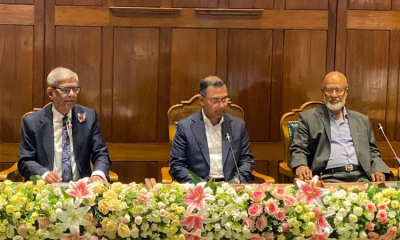False information online has left one in five girls (20%) feeling physically unsafe, according to ‘The Truth Gap’, a new report by Plan International.
The research includes survey of over 26,000 girls and young women from 26 countries, which also found that exposure to lies and mistruths are having a profound impact on how they engage with issues ranging from Covid-19 to politics.
Plan International, which says the findings lay bare the ‘real life consequences’ of misinformation and disinformation on girls and young women, is calling on governments to educate children and young people in digital literacy.
One in three report that false information is affecting their mental health, leaving them feeling stressed, worried and anxious.
In-depth interviews carried out in the survey by Plan International suggest that girls are feeling unsafe because online exchanges are increasing social tensions within communities.
Others reported concerns about bogus events advertised on social media placing them at physical risk, or unreliable medical advice that could harm their health.
More than a quarter (28%) of those surveyed have been led to believe a myth or ‘fake fact’ about Covid-19, and one in four (25%) have questioned whether to get vaccinated against the virus.
One in five (19%) say mistruths are so rife that they have distrusted election results, while one in five (18%) have stopped engaging in politics or current affairs as a result.
Girls and young women from low and middle-income countries were more likely to be affected by unreliable or false information online, and twice as likely to have questioned whether to get the vaccine (31%) than those in high income countries (16%).
In the first large-scale global study to examine the gendered impact of misinformation and disinformation online, it was found that nearly nine in 10 (87%) of girls and young women think it has had a negative impact on their lives.
Globally, there was no online source that the majority of those surveyed trusted to provide reliable information.
The most trusted source was mainstream news media, selected by 48%, above educational institutions, family members and national governments.
The survey found that Facebook was the social media platform that girls believe to have the most misinformation and disinformation, selected by 65% of respondents, followed by TikTok, WhatsApp and YouTube – all at 27%.
Bhagyashri Dengle, Executive Director (ED) of Gender Transformative Policy at Plan International said:
“The internet shapes girls’ opinions about themselves, the issues they care about and the world around them. Our research makes clear that the spread of false information online has real life consequences. It is dangerous, it affects girls’ mental health, and it’s yet another thing holding them back from engaging in public life”.
The organisation’s survey found that seven out of 10 girls and young women (67%) have never been taught how to spot misinformation or disinformation at school.
















-20260218060047.jpeg)


-20260217073221.webp)
















